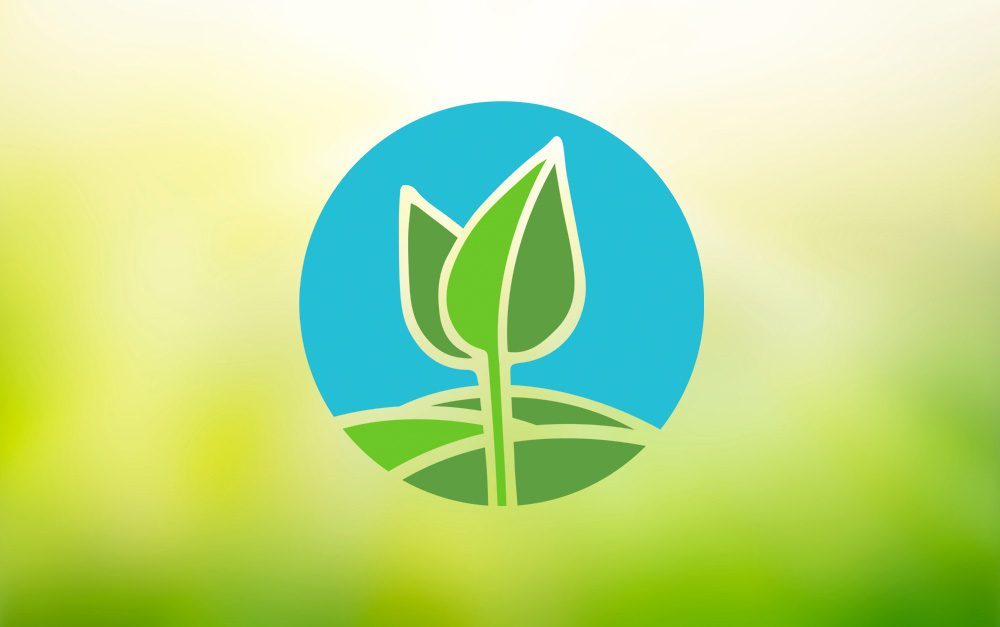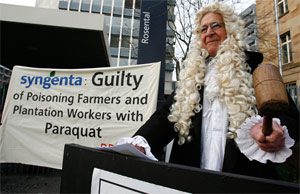Berne Declaration * Pesticide Action Network International * IPEN * IUF
Contact: Paul Towers, Pesticide Action Network
ptowers@panna.org, 916-216-1082
FOR IMMEDIATE RELEASE
May 9, 2013
Guatemala and India block listing of toxic paraquat formulation in the Rotterdam Convention
Industry representative deceives delegates by speaking on behalf of Guatemalan government
Failure to list will deprive countries of their right to know and to take informed decisions about import
Geneva, Switzerland – More than 120 government parties to the Rotterdam Convention support the listing of paraquat (20%) as a severely hazardous pesticide formulation in Annex III of the Rotterdam Convention. However, at the 6th Conference of Parties, Guatemala together with India blocked the listing of paraquat. A Convention listing would not ban paraquat but simply require exporters to notify and get permission from importing countries.
Guatemala gave a long list of initial reasons for opposing the listing but finally admitted that they feared a listing would result in some countries in the region saying no to imports of paraquat from Guatemala (a major formulator of the herbicide). Delegates were even more surprised when they finally learned that the delegate speaking on behalf of the Guatemalan government at the beginning of the negotiation was actually an industry observer who did not reveal his identity to negotiators until a day later. The Secretariat later expelled him from the conference.
Nevertheless, the co-chairs of the Working Group concluded that no consensus for listing was achieved and proceeded to draft a decision document postponing the discussion to the next COP. The next day the African Group supported by others requested that the discussion on the listing of paraquat continue at this COP because the misconduct of the industry representative from Guatemala had derailed the process. However, this additional session did not change the position of India and Guatemala.
“We thought governments would rapidly approve the listing of paraquat considering that it met all Convention requirements,” said Francois Meienberg, Berne Declaration. “Unfortunately, industry deception and false arguments derailed the process and the inability to list the substance threatens the integrity of the Convention.”
The proposal to list the paraquat formulation was made by Burkina Faso due to the large number of human poisonings related to the use of the Syngenta product, Gramoxone Super (Paraquat 20%). The Convention’s Chemical Review Committee (CRC) analyzed the proposal by Burkina Faso and unanimously supported the listing of the paraquat formulation as a severely hazardous pesticide. Abundant documentation proving that conditions in Burkina Faso are similar to those in other countries and regions was made available to the CRC. For example, in El Salvador, an average of 344 poisoning due to Gramoxone were reported per year from 2005-2010.
Paraquat is prohibited in more than 40 countries including the home country of Syngenta, the main manufacturer. “Paraquat is one of the world’s worst herbicides,” said Dr. Meriel Watts, IPEN and Pesticide Action Network. “A teaspoon of paraquat is enough to kill a person and there is no antidote. Farmers all over the world suffer from skin burns, blindness, and respiratory damage as a result of using paraquat.”
The objective of the Rotterdam Convention is to share information and to give importing countries the possibility to give prior informed consent before the import of certain hazardous chemicals. “It is a shame that a country from one of the regions most affected by paraquat has blocked an international mechanism that would enable countries to protect agricultural workers, farmers, and rural communities,” said Fernando Ramirez, Pesticide Action Network Costa Rica.
Contacts:
Francois Meienberg, Berne Declaration +41 79 796 76 12 food@evb.ch
Meriel Watts, PhD, IPEN and Pesticide Action Network merielwatts@xtra.co.nz
Chela Vazquez, PhD, Pesticide Action Network chela.vazquez@panap.net
###







